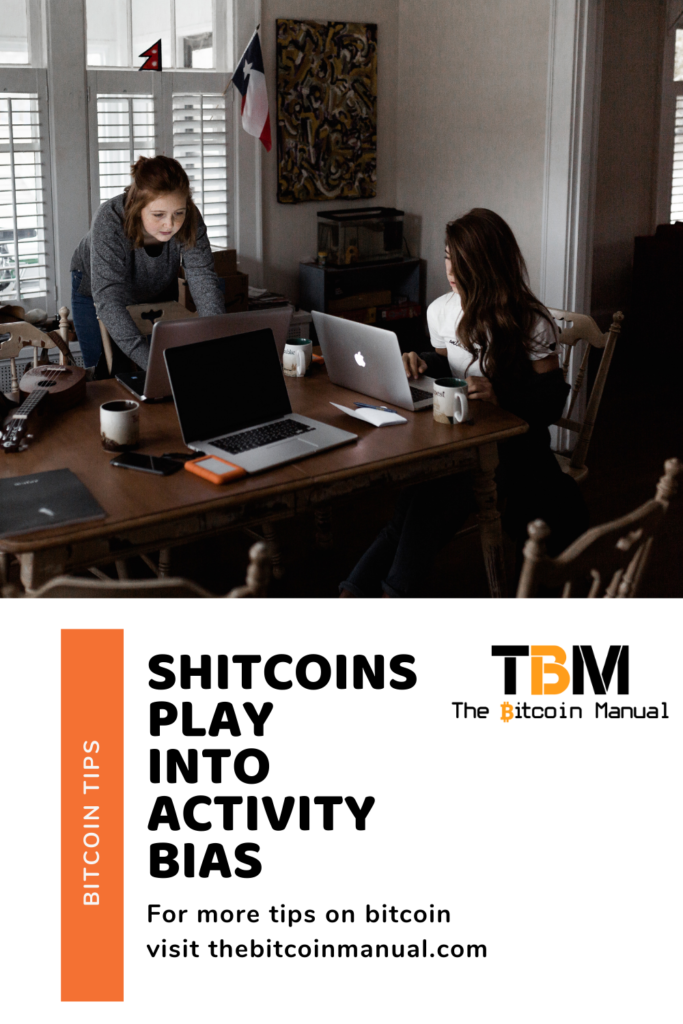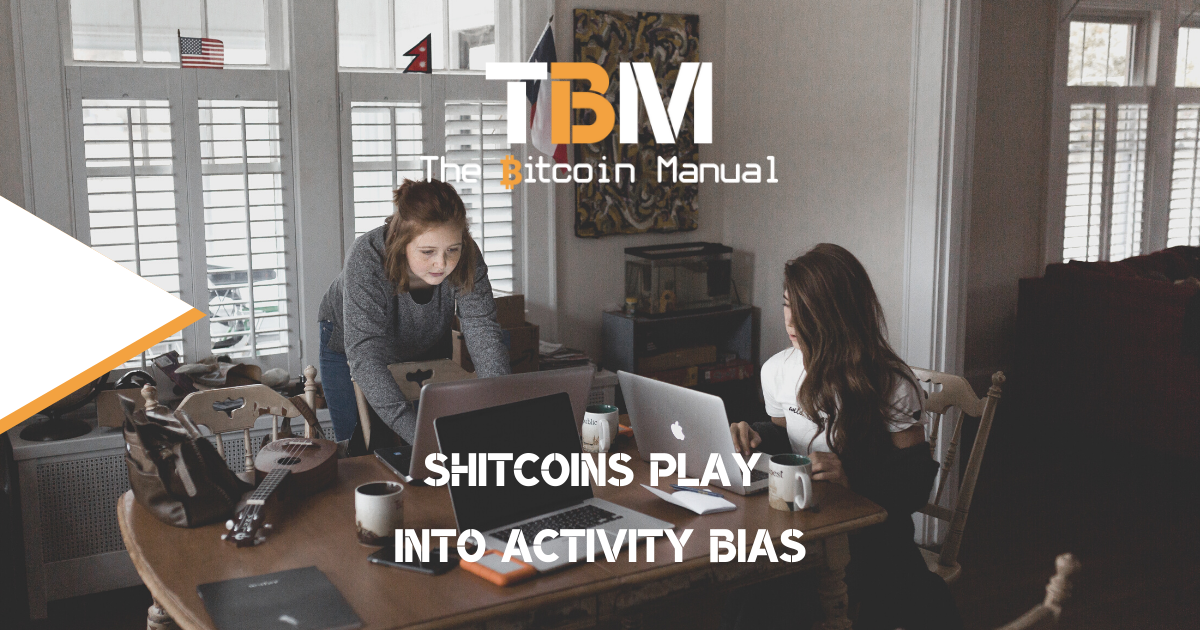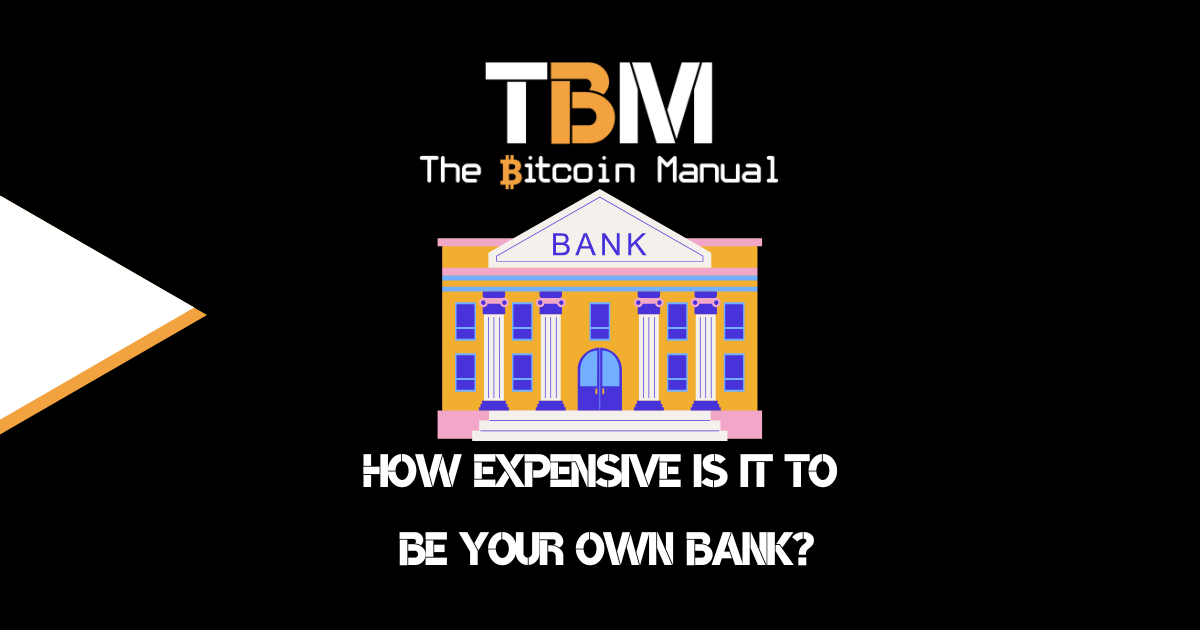The fiat system’s decline manifests in all sorts of strange behaviours which seem perfectly rational under the circumstances. The need to keep pace with inflation, either to remain in the same place or gradually ahead of it, drives people to extremes. The modern worker either has to roll the dice at the investment casinos known as stock markets taking on excessive risk or working themselves to an early grave trying to sell their time and labour for as much money as possible.
In many cases, it’s already a combination of both, where you’re working your job, and side hustle and using that extra income and going to risk it in capital markets and go out and earn your money twice.
Instead of looking at the way we allocate capital, the way we save, and how corrupted the markets have become through currency debasement, we look inward; we think we’re doing something wrong. We see so many examples in the media of affluence without hearing the full story and feel that if some can succeed in the current rule set, surely we can figure it out.
We’re told nothing is wrong with the system we’re living in, and all that’s missing is a lack of effort. You’re only that degree, that job, that investment, that business away from the big time.
Being a millennial, I can see fiats influence in the birth and popularity of hustle culture.
What is hustle culture?
Hustle culture is taking the call towards the entrepreneurship path and commodifying the experience, and juicing it up with steroids and red bull. The hustle culture is one of glamourising sacrifice and suffering; It’s a lifestyle where a career has become such a priority in your life or the environment that you work in that other aspects of being human — such as hobbies, family time, and self-care — often take a back seat.
You can have a look at popular content on social media, from Instagram, Facebook, and YouTube. It’s all about #grindset, staying motivated, learning to adapt, and taking control of your future. These are by no means bad messaging, but how we apply, it has turned into toxic positivity.
The skilled entrepreneur or investor understands that there are cases where you have to pull back, where you have to change your approach, where effort can’t outpace reality, and where you are falling for the sunk cost fallacy. You need to learn to take the loss, learn, pivot, and move on. In hustle culture, it’s all about keeping it going, ignoring the signal the markets are giving you because your big break is around the corner.
Keep creating content, keep funding that loss-leading business, and keep buying the dip. Eventually, it will turn around, and the money will flow back x10 than it flowed out. You reap what you sow, and all those tired tropes, business coaches, and motivational speakers shill to an unsuspecting public willing to pay to hear lies that make them feel good.
Preprogrammed to discount all risk
When you’re living in a world that constantly provides you with feedback on doubling down on your bets and ignoring the pain receptors, you’re primed for the eventual progression into financial markets. You have a cap on how much time, skill, and labour you can sell in the market, and if you’re going to keep up any hope of growth, you need to take on more risk.
Savings accounts are going to get you nowhere, bonds aren’t going to net you a return worth looking at, and gold has been flat for years, so all you have is the stock market.
The stock market, be it value investing or momentum trading, has now become the new savings account. Yes, taking on risk is the only way to keep pace with inflation or outpace inflation, and even then, this is not a given.
You could lose your shirt, and if you’re lucky enough to book profits, you better ensure those returns after-tax on that income don’t put you behind once again. We live in a world where people see 12 months as long-term investing, where taking leverage has become the norm, and where young kids’ ambition is to become degen day traders.
Instead of going out there and producing more goods and services that people need, we’re sucking more capital and talent into a market where it’s all about sloshing capital around and seeing how they can pull out more than they put in.
Shitcoin activity bias
As inflation continues to rise, the returns in the stock market aren’t enough to satisfy some people, and they’re looking further out the risk curve. A job the shitcoin market provides, it trades 24/7 and depending on the centralised trading platform or DEFI exchange you’re using, there are little to no checks and balances in place; it’s a free for all where anything goes.
The shitcoin market is the natural progression of those who have no pain receptors and have no idea how to price risk. When you have no understanding of risk, but there is a promise of upside, you’re going to jump in. It even has a name, YOLO trading or Apeing in; we’ve taken some aspects of investing and combined it with the casino and memetics, and out came the shitcoin market.
The shitcoin market caters to the idea you need to do more to get ahead, and they’re constantly churning out new products to ensure you believe that is true. It first started with being able to trade these illiquid coins against bitcoin and fiat, which would have hyper volatility compared to the stock market, but that wasn’t enough; after a while, that drug lost its potency.
Then they cooked up ICOs, STOs, IDO, then DEFI, then NFTs; now it’s flash loans, staking, liquidity pools, yield farming. There is always something to do to keep you busy, to add more risk, and try and improve your chances of making a return.
Like it or not, this is the natural progression under the circumstances we find ourselves in, and shitcoiners are tracking logically, ignoring risk, and chasing yield. You have a choice, either lose your money slowly through inflation or lose it fast trying to earn outsized returns.
I will grant you the fact that shitcoins have made a few obscure people millionaires, but to do so, it made millions of people a lot poorer than they otherwise would have been.
Bitcoin can seem counter-intuitive
I think that’s why bitcoin doesn’t resonate with people immediately; it’s about taking a beat and going against the trend toward self-destruction, that shitcoins provide. Yes they may all be labeled digital assets but bitcoin and shitcoins are completely different asset classes, bitcoin is risk-off, shitcoins are risk on turned up to max.
Many of us toxic maximalists had to take the shitcoin road first to realise what bitcoin is and how it works. Bitcoin is about taking chips off the table, reducing risk by taking custody of your funds, it’s about learning to save, it’s about protecting yourself against uncertainty and delaying gratification, it’s about building equity that you can deploy when you do find viable opportunities.
Bitcoin is about repairing your relationship with money and rebuilding your balance sheet through the simple act of saving in a form of property that cannot be diluted. As you experience the automaticity of regular saving and being rewarded for it.
I know it may feel weird to be doing less and simply stacking sats, but when has bucking the trend ever felt natural? Being the contrarian will always come with resistance





